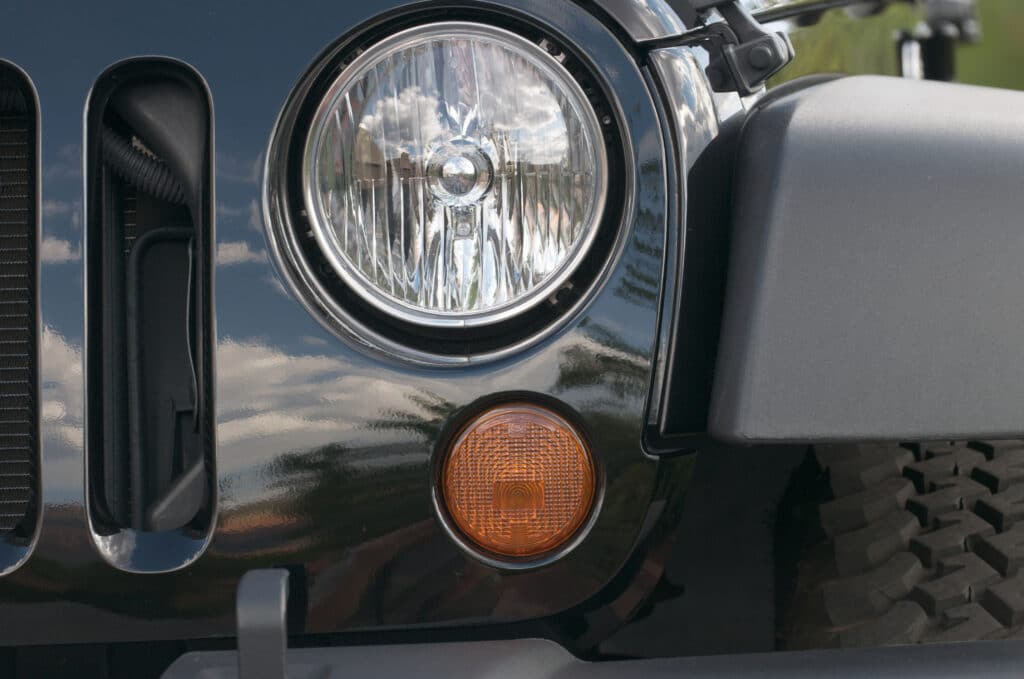Honda Lemon Law
In California, owners of Honda vehicles may qualify for protection under the state’s Lemon Law. The regulation requires a manufacturer or dealer to replace or repurchase a vehicle that exhibits persistent mechanical issues. These problems may compromise the safety, future value, or use of your car.
The Honda Lemon Law applies to most new or used vehicles that come with a manufacturer’s warranty. Your Honda may qualify if it has ongoing issues despite multiple repair attempts. At Lemon Law Help, our legal team has been helping vehicle owners across California secure legal justice for over 15 years. We roll up our sleeves and do the work to help you get the best settlement possible.
Home » Manufacturers » Honda Lemon Law
Why Work With Our Honda Lemon Law Lawyers?
Our legal team believes that every consumer who buys a car should get a dependable, reliable vehicle. We’re on a mission to hold auto manufacturers accountable for distributing defective vehicles that don’t comply with California legislation. We fight all the way to the end at trial to achieve a satisfactory outcome for every lemon law case we take on.
When you hire our law firm, you can expect knowledgeable attorneys who are eager to defend your rights as a consumer. We handle everything for you and keep you informed every step of the way, so you always know where your case stands.
Our lawyers have a proven track record of favorable results in lemon law claims. In fact, we have a 99 percent success rate when representing car owners and lessees in cases against auto manufacturers.
We offer contingency fee representation, which means you won’t have to worry about out-of-pocket fees. Our attorneys only get paid if you win your claim. We exclusively focus on California cases, so whether you’re in Los Angeles, San Francisco, or another part of the state, we can help.
How the California Lemon Law Protects Honda Owners
The California Lemon Law applies to Honda automobiles used for personal or business purposes, including cars, vans, SUVs, and pickup trucks.
To qualify as a lemon, a Honda vehicle must have persistent issues that require frequent repairs. Under the law, that includes:
- Vehicles that are in the shop for the same problem four or more times.
- Cars that have undergone two or more unsuccessful repairs and still have significant safety issues that can result in death or serious bodily injury.
- Vehicles that undergo more than 30 days of repairs—not necessarily consecutively—for problems covered under the manufacturer’s warranty.
California Lemon Law includes a legal presumption that your vehicle is a lemon if certain issues occur within the first 18 months of delivery or 18,000 miles, whichever comes first. However, you may still qualify for relief under the law even if the problems arise outside that period, as long as they occurred while the vehicle was under the manufacturer’s warranty.
Used Hondas may qualify for lemon law protection if they are still covered by the original manufacturer’s new vehicle warranty or a certified pre-owned (CPO) warranty. Vehicles sold “as is” or without a manufacturer-backed warranty typically do not qualify.Eligible Hondas must be under the manufacturer’s new vehicle warranty. In most cases, vehicles purchased outside California are not covered under the state’s Lemon Law unless the manufacturer’s warranty explicitly extends California protections to the vehicle. It’s best to consult with an attorney if you’re unsure whether your car qualifies.
A successful lemon law claim may force a manufacturer or dealer to replace or repurchase your Honda. Some cases also end in a cash settlement.
Top 8 Honda Lemon Issues
Honda produces several models, including the Honda CR-V, Honda Accord, Honda Civic, Honda Odyssey, and Honda Pilot. Honda owners and lessees should look out for the following signs of a lemon vehicle:
- Random braking
- Check engine light turns on
- Hard shifting
- Vehicle hesitation
- Front end collision system malfunctions
- Engine oil dilution
- Steering wheel jerking or veering
- Excessive oil consumption
Another noteworthy issue includes the Honda defective paint class action lawsuit, in which drivers mention paint discoloration and peeling.
If these symptoms or other vehicle problems repeatedly appear, your Honda may be a lemon. Several lemon law claims and class action cases were filed against Honda for these issues. If your Honda has shown these issues and your dealership or auto repair shop couldn’t fix them, consult a lemon law attorney to discuss legal remedies from your auto manufacturer.
Honda Lemon Law Litigation
Several class action lawsuits have been filed against Honda for issues that make these vehicles unsafe to drive. Alleged defects include dilution of engine oil, phantom braking, transmission issues, and acceleration issues.
If your Honda is included in one or more of these class action lawsuits, we can help you opt out and pursue an individual lemon lawsuit. By pursuing an individual lemon law claim, you could sue for charges specific to your situation and potentially recover a far more substantial cash settlement.
Honda Engine Oil Dilution
A class action lawsuit was filed in 2021 against Honda, alleging that some of its vehicles suffered from engine oil dilution. Honda’s Earth Dreams 1.5L direct injection engines supposedly leaked gasoline into the engine oil.
The resulting engine oil dilution allegedly led to premature wear and tear, engine stalling, and other engine defects. Vehicle models named in this lawsuit include: 2019–2021 Honda CR-V, 2019–2021 Honda Civic, and 2018–2021 Honda Accord.
Honda’s Collision Mitigation Braking System
Certain Honda vehicles equipped with the Honda Sensing technology suite are included in a class action lawsuit stating that some of its safety systems malfunction. The Collision Mitigation Braking System (CMBS) is an automatic emergency braking system supposed to detect objects in front of a vehicle, warn drivers, and brake the vehicle, if needed.
However, the CMBS allegedly detects objects that aren’t there, gives false alarms, and sometimes brakes at random. Vehicle models named in this lawsuit include: 2016–2020 Honda Accord, 2016–2020 Honda CR-V, and 2016–2020 Honda Pilot.
Honda’s Automatic Transmission Issues
Honda has faced multiple class action lawsuits alleging that some Honda Pilot and Honda Odyssey vehicles experience issues with the automatic transmission. Examples of these issues include violent shaking, lurching, stalling, and other problems. Jerking, lurching, deteriorated transmission fluid, torque converter clutch (TCC) shuddering, and other issues may appear in these Honda vehicles: 2011–2019 Honda Odyssey and 2014–2019 Honda Pilot.
Honda’s 9-speed transmissions allegedly experience similar defects, such as rough or delayed shifting, delayed acceleration, gear shifting problems, sudden or harsh acceleration, and loss of power. 9-speed transmissions may cause issues in the following vehicles: 2018–2019 Odyssey, 2016–2022 Pilot, 2018–2022 Passport, 2016–2020 Acura MDX (non-hybrid), and 2015–2020 Acura TLX.
Honda Idle-Stop Acceleration Issues
Honda’s idle-stop feature automatically shuts off the engine when the brake pedal is fully applied and the vehicle is idling. The idle-stop feature is supposed to restart the engine automatically when the driver releases the brake pedal.
A class action lawsuit alleges that the idle-stop fails to restart the engine when the brake pedal is released. As a result, the driver can’t operate the Honda vehicle. The following vehicles allegedly experience the Honda idle-stop defect: 2016–2020 Pilot, 2016–2020 Odyssey, 2016–2020 Acura TLX, and MDX.
Honda Turbocharged Engine Problems
Some of Honda’s vehicles include its high-compression 1.5-liter i-VTEC turbocharged engine. They offer greater acceleration, but some consumers have experienced severe problems with their vehicles due to faulty engine components. The parts can’t tolerate the pressure and heat a turbocharged engine generates.
As a result, vehicles experience coolant leaks, engine misfires, and oil dilution. In one case, a consumer alleges that the problem caused the car to lose power when driving on a high-speed road. Vehicles that may be susceptible to the i-VTEC turbocharged engine problem include the 2018-2022 Accord, 2016-2022 Civic, and 2017-2022 CR-V.
We Can Help You Obtain A Honda Lemon Law Buyback
If your Honda is found to be a lemon, you may be eligible for a lemon law buyback. This means you may be eligible to receive a full refund for your Honda, minus an offset based on the “good miles” you got out of your car before it showed symptoms of a defect. Some lemon owners and lessees may also be eligible for additional damages and end up receiving up to three times their vehicle’s purchase price, depending on the facts of their case.
Don’t pursue the process alone. If you have a 2020 or newer car with recurring issues, get a free consultation with our California Honda lemon law attorneys. Complete our consultation form below or call us at 833-208-8181 to get started. We will walk you through the process and answer any questions you may have about your Honda lemon.
Do You Have A Lemon Vehicle?
"*" indicates required fields
Recent News & Recalls
- Dodge, FCA, Ram, Recalls, Uncategorized





